Health and wellness are top concerns today. One of the basic ways to maintain wellness is through regular medical checkups. This article sheds light on the importance of medical checkups.
What is a medical checkup
A medical checkup is a physical performed by a medical doctor. It generally consists of a health history, physical exam and diagnostic tests.
This exam is a crucial part of any doctor’s visit. However, there are no absolutes in a routine physical. A good doctor may be thorough or brief, but they will spend time listening to a patients concerns and providing counseling for their particular needs.
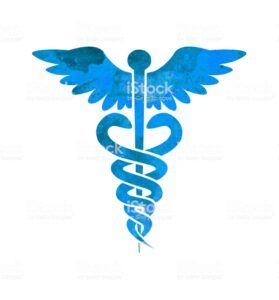
During the course of providing medical history, this is the time to mention any health related complaints or concerns. The doctor will additionally pose questions about lifestyle behaviors such as smoking, excessive alcohol use, sexual health, diet, and exercise. The physician will also check inquire about vaccination status and update personal and family medical history.
During the physical exam segment of the visit, the physician will check vital signs.
These are some of the vital signs that would be checked 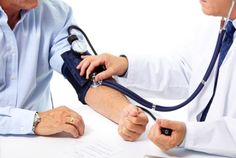
- Temperature: 98.6 degrees Fahrenheit is the average, but healthy individuals can have resting temperatures slightly higher or lower.
- Heart rate: readings between 60 and 100 are considered regular. Many healthy individuals have heart rates slower than 60, however.
- Blood pressure: Less than 120 over less than 80 is considered a normal blood pressure. Doctors define high pressure level (hypertension) as 130 over 80 or higher.
- Respiration rate: From 12 to 16 breaths per minute is regular for a healthy adult. Breathing in excess of 20 times per minute can suggest heart or lung problems.
This part of the exam can also include general appearance. A physician gathers a large amount of information about an individual and their health just by observing and speaking to them. For example: How is their memory and mental quickness? Does their skin appear healthy? Can they easily walk and stand?
Then there’s the heart exam. Listening to the heart with a stethoscope, a doctor could detect an irregular heartbeat, a heart murmur, or other clues to heart disease.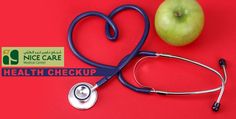
The lung exam – Using a stethoscope, the physician listens for wheezes, crackles, or decreased breath sounds. These and other sounds are indications of the presence of heart or lung disease.
Head and Neck Exam – Opening up shows off the throat and tonsils. The quality of the gums and teeth also provides information about overall health. Eyes, ears, sinuses, nose, lymph nodes, thyroid, and carotid arteries can also be examined.
Abdominal Exam – A physician can use a host of examination techniques including tapping the abdomen to detect liver size and presence of abdominal fluid, listening for bowel sounds with a stethoscope, and examining for tenderness.
Neurological Exam – balance, and mental state, muscle strength, nerves, reflexes, may be assessed.
Dermatological Exam – Skin and nail results may indicate a dermatological difficulty or disease elsewhere in the body.
Extremities Exam – A physician will look for physical and sensory changes. Pulses can be checked in the arms and legs. Examining the joints can assess for irregularities.
An annual physical exam for men might additionally include:
- Testicular exam: A physician may check each testicle for lumps, tenderness, or changes in size. Most men with testicular cancer notice a growth before seeing a physician.

- Hernia
exam – Checks for a weakness in the abdominal wall between the intestines and scrotum. - Penis exam: A physician might notice evidence of sexually transmitted infections (STD’s) such as warts or ulcers on the penis.
- Prostate exam: Inserting a finger in the rectum allows a physician feel the prostate for its size and any suspicious areas. For more information on the prostate, see the article:All About the Prostate on this website.
An annual exam for women might include:
- Breast exam – Examining breasts for abnormal lumps can detect breast cancer or benign breast conditions. The physician will also check the lymph nodes in the underarm area and look for visual abnormalities of the breasts.
- Pelvic exam: The pelvic exam permits evaluation of the vulva, vagina, cervix, uterus and ovaries. Regular checks for sexually transmitted diseases are often done. A pap smear test and HPV test can screen for cervical cancer and help assess risk.
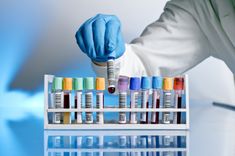
The story is in the blood!
Last but not least, the diagnostic or laboratory tests. There are no standard diagnostic tests during an annual physical. However, some physicians will order certain tests routinely such as chemistry panel, complete Urinalysis (UA) and blood count. Unless symptoms already suggest an issue, however, these tests are unlikely to supply useful information.
A screening lipid panel (cholesterol test) is suggested every four (4) to six (6) years, consistent with the American Heart Association. A physician might check more regularly if there are risk factors for coronary heart disease. Substandard cholesterol levels increase the risk for heart attacks and strokes.
If an individual is overweight or have any risk factors for diabetes, their blood glucose will likely be checked. However, the American Diabetes Association recommends that all individuals, beginning at age 45, should be tested for diabetes no matter their weight may be.
These tests can indicate conditions even before a there are any symptoms (i.e. low vitamin or mineral levels). There is so much information contained in the blood of an individual.
Why are medical checkups important
In earlier years, individuals used to see their doctor only when they were ill, or terminal. Today, preventative health care is becoming the standard as individuals become more educated and empowered about their own health. People are preemptively seeking medical advice on the way to live a healthy lifestyle. They are looking to lower their risk of various conditions or varied conditions by maintaining a healthy diet, weight, and level of physical activity.
Physicians are additionally requesting that patients get regular check-ups to help stay on top of their health. They are highlighting the importance of prevention, as a way to scale back the amount of patients requiring medical treatment or surgery.
Regular check-ups can help find potential health issues before they become chronic. When an individual visits their doctor regularly, they are able to detect health conditions or diseases early. Early detection gives one the best chance for getting the right treatment quickly, and avoiding any.
By getting the correct health services, screenings, and treatment that is taking important steps toward living a longer, healthier life.
The benefits of regular check-ups include:
- Reduce the risk of becoming ill
- Detect possibly life-threatening health conditions or diseases early
- Increased chances for treatment and cure
- Limit risk of complications by directly monitoring existing conditions
- Increased lifespan and improved health
- Reduce healthcare costs over time by avoiding costly medical services
- The forming of a good partnership with the physician so treatment can be more efficient
- Get current on new medical data or knowledge that is obtainable
The yearly physical exam may be a great chance to redirect one’s attention on prevention and screening. Some screening notes are below: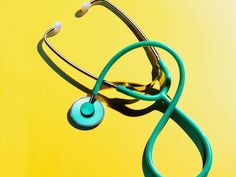
- At age 50, it’s time to commence standard screening for colorectal cancer. People with immediate members of the family with colorectal cancer or other risk factors may have to be screened before age 50.
- For some women, age 40 indicates the time to commence yearly mammogram testing for breast cancer. The American Cancer Society recommends that ladies ages 40 to 44 should have the option to begin mammograms if they want to do so. Women age 45 to 54 should get mammograms annually while women 55 and older should switch to mammograms every 2 years, or can continue yearly screening. Women should ask their doctor or other health care professional about when to begin and how frequently to request a mammogram. Women should weigh the advantages and risks of screening tests when deciding whether to commence getting mammograms at age 40.
Prevention is better than cure! Healthy behaviors work much better than medicine at preventing illness, and do not require a prescription. The sooner you know about a problem, the sooner and more effectively you can work on illuminating it.
How often should I get checked
The recommendation is annually. If however you have a condition or are obsessive about your health (like I am), go more often.
I have personally had conditions (2) of which I had no symptoms that showed up during routine blood work. But because of early detection, treatment was engaged and they were corrected. Had I not been conscious enough about my health to get regular physicals, the outcome would have been much worse.
I personally go every six months, but…once a year is usually sufficient for a healthy individual. I never recommend not getting a physical. Our bodies are too complicated and too many things can commence without our knowledge.

Therefore, take charge of your health and schedule an appointment with your physician for an exam if you haven’t already done so.
Please feel free to leave any question, comment or concern below.
Good Health!!
Hello there,thanks for this awesome article it would be of great help to the public as it has been of help to me……..It has been told over and over again by doctors, that one needs to have regular medical check-ups to keep track of their health. Something as simple as visiting the doctor for a check-up can ensure that you are getting screened for diseases and other body related stuff
These check-ups could be quarterly, twice a year or yearly. These screenings can help individuals detect any possible ailments or diseases that you are at risk for, Regular medical check up would help to know what next to do if you have any defect or disease.
Regards,
David.
You are so correct David. Thanks for stopping by and commenting!
Hello Nathaniel,
I agree with you medical check-ups are absolutely necessary. I see my family doctor 2 times per year because I am a type 2 diabetic. Times are changing and so is the amount of time you can spend with your doctor. Years ago, I could go in and talk to him for 30 minutes, now you are only allowed 10 unless you schedule more time.
More time, would include a physical or other checks or problems. I go into the lab on a semi annual basis and get a blood panel for diabetes. Although the blood panel checks high blood sugar, other tests I get, include: lipid, kidney, insulin, and liver.
For those of you that have any kind of issues with your body go get a medical check-up.
Good information.
thanks.
Jimmy.
You are so right Jimmy – we all need to be proactive with our health. Thanks for commenting!
I believe the most important piece of advice you presented in this article was when you explained that when you turn 50 you should be screened for colorectal cancer. My dad passed away from colon cancer when I was young and I was told that I need to check up on my health earlier than most people. That is why I am trying to find a medical checkup service in this area where I recently moved so I can have peace of mind.
Hello Faylin – Thanks for commenting. Yes medical check-ups are vital for proactive health awareness. It’s the only way to know what is going on with our bodies. The older we become the greater the importance. I am sorry about the loss of your dad.